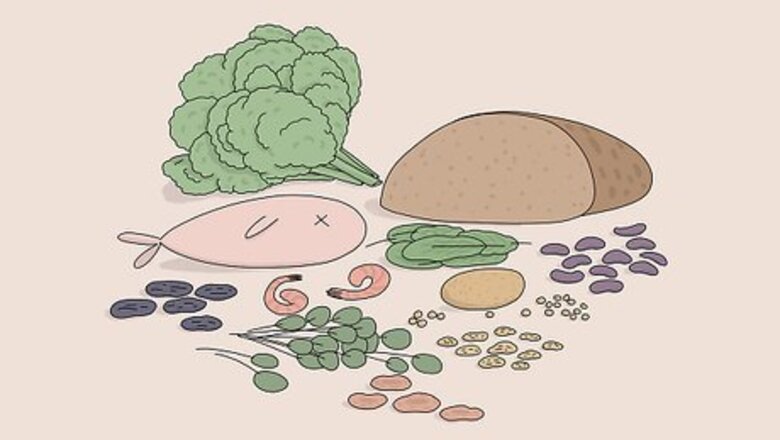
views
X
Trustworthy Source
Cleveland Clinic
Educational website from one of the world's leading hospitals
Go to source
They can check for potential causes and suggest treatments to get your iron levels up quickly.
Adjusting Your Diet
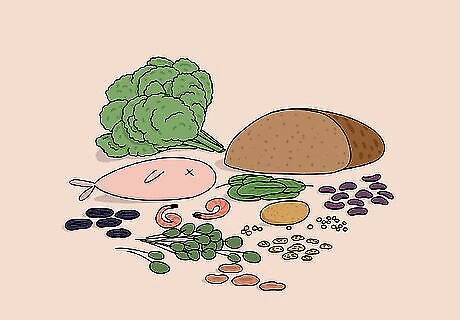
Eat more iron-rich foods every day. It’s important to get the recommended daily allowance of iron for your sex and age, and the best way to do this is by eating iron-rich foods. Include 2 to 3 servings of iron rich foods in your daily diet. Some good choices include: Green, leafy vegetables, such as spinach, kale, and watercress Iron fortified cereal and bread Meat, such a ground beef, chicken, pork, and turkey Fish and shellfish, such as oysters, clams, crab, scallops, and shrimp Dried fruit, such as raisins, apricots, and prunes Beans and lentils

Consume fruits and vegetables that are high in vitamin C. Vitamin C helps your body absorb iron more efficiently, so pair vitamin C-rich foods with iron-rich foods. Vitamin C is in many different foods, so it’s easy to include. Some good choices include: Citrus fruits, such as oranges, grapefruit, and lemons Melon, such as cantaloupe and honeydew Bell peppers Kiwi Strawberries Tomatoes
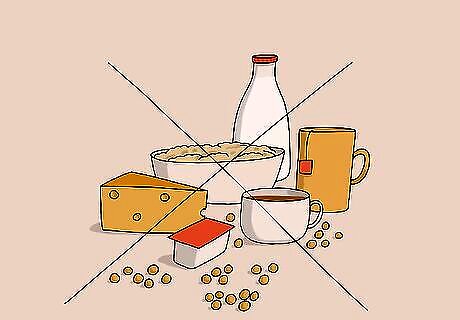
Cut back on foods and beverages that interfere with iron absorption. Some foods may make it harder for your body to absorb iron, so it’s best to avoid or limit these. At the very least, avoid consuming these foods when you eat iron-rich foods. Some foods that may interfere with iron absorption include: Coffee Tea Dairy products, such as milk, cheese, and yogurt Soy Wholegrain cerealsTip: You may also want to include foods that contain folate, vitamin B6, and vitamin B12. These nutrients are important for preventing anemia. These vitamins are usually easy to get since they are commonly added to fortified breads, pasta, rice, and cereals.
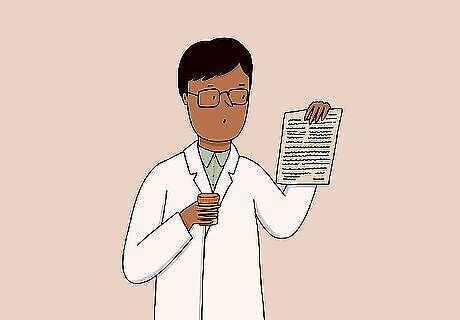
Consult your doctor before taking an over-the-counter iron supplement. While taking an iron supplement can be an effective way to quickly raise your iron levels, it is important to consult your doctor before you start taking one. It might not be necessary depending on your iron levels, or your doctor may prefer to prescribe a supplement if your levels are very low. If your doctor recommends taking an iron supplement, follow their instructions carefully for how to take it. Don’t exceed the daily dosage or quit taking it before consulting them. You may need to take the supplement for 6 months or longer to get your iron levels back to normal. Drink a glass of orange juice when you take your daily iron supplement. This may help your body to absorb more iron.
Seeking Medical Treatment

Watch for symptoms of anemia. Anemia due to a lack of iron is a common condition. If you notice any symptoms of anemia, tell your doctor right away. It’s important to treat anemia before it gets worse. Some common symptoms to watch for include: Feeling tired and run down Having shortness of breath Getting heart palpitations or noticeable heartbeats Having pale skin Susan M. Lark Susan M. Lark, Hematologist The key to correcting iron deficiency anemia is identifying and treating the cause. While diet can help, issues like heavy menstrual bleeding or gastrointestinal disorders must be addressed first. Consuming iron-rich foods is an important part of treatment but is rarely sufficient on its own, especially when deficiency has reached the point of anemia. Work with your doctor to discover the root cause, rather than blindly taking supplements, which can do more harm than good if an underlying condition remains.
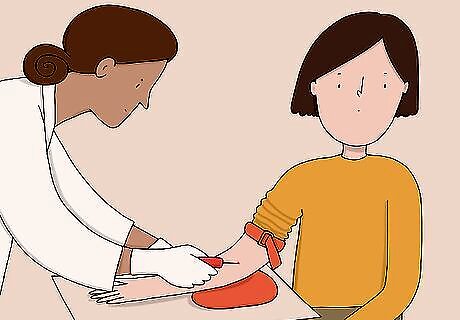
Get a blood test to check for iron deficiency. Your doctor can easily check your iron levels to see if they are within the normal range, but it will require going for a blood test. For this test, a phlebotomist will remove a small vial of blood from a vein in your arm and send it to a laboratory for testing. If your doctor suspects you're anemic, they'll likely do a complete blood count (CBC) and ferritin test. It's possible to test your iron levels, but your lab results will be affected by your day's diet. The blood test can confirm if you are anemic, and it will also confirm what type of anemia you have. For example, you might be anemic due to a deficiency in iron or due to a deficiency in folate or vitamin B12.
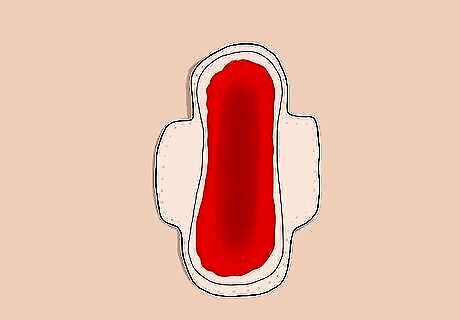
Ask your doctor about contraceptives if you have heavy periods. Taking birth control may help to treat anemia that’s being caused by a heavy menstrual cycle. If you often have a heavy blood flow during your period, tell your doctor. They might recommend a contraceptive to reduce the amount of blood that you shed during your period each month, and this may treat your anemia. Hormonal contraceptives are available in the form of pills, patches, implants, and injections.
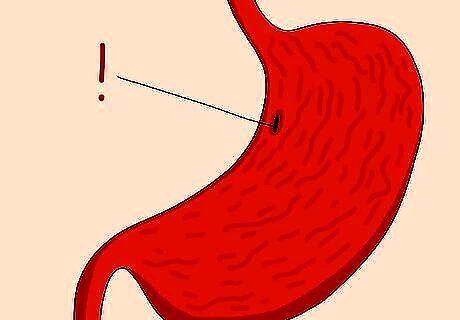
Look into medications to treat stomach ulcers. If you’re bleeding internally, such as due to stomach ulcers, you might become anemic. Stopping the bleeding is necessary to treat the anemia, so your doctor will likely recommend medications for the ulcers if they suspect this is the cause of your anemia. Take the medications exactly as your doctor instructs you to and don’t stop taking them without checking first. Don't take non-steroidal anti-inflammatory drugs (NSAIDs) if you have a stomach ulcer. They can aggravate your ulcer and may increase your bleeding risk, which can make your anemia worse.Tip: Your doctor may check for other conditions depending on your symptoms. Anemia can be a sign of cancer in rare cases, so they may run tests to rule this out.















Comments
0 comment